CASE STUDY:
Leadership Development (Overcoming Resistance to Change)
CLIENT
Head of Emerging Markets at Leading International Consulting Firm
NEED
The coachee was a powerful individual contributor. The emerging markets team was the fastest growing area within the firm and was undergoing significant change and transition. While the coachee was in the process of building a strong team around him, he still behaved like a heroic leader. As the team grew it would become increasingly important for the coachee to lead more collaboratively, to learn how to work more effectively with and though others, and to support the development of a high performing team. 12 months earlier the coachee had participated in a relevant internal training course followed by 6 one-on-one coaching sessions. At first the training and coaching appeared to be having a positive impact. However, despite the fact that the coachee was both motivated and committed, within 3 months of the conclusion of the coaching assignment the coachee had reverted to his earlier behavior.
SOLUTION
Executive coaching initially focused on developing an appreciation of the value, and indeed necessity, for a more collaborative leadership style in the context of the firm’s strategic needs, business drivers and key challenges. Even with the development greater insight and self- awareness, the coachee was still not maximizing his full potential – he effectively had one foot on the gas and one foot on the break. Using proven evidence based techniques and approaches allowed the coachee to identify competing commitments, actions that were holding him back and ultimately helped him overcome self handicapping behaviors (such as avoidance of risk and perfectionism) that were preventing behavior change.
RESULT
360-degree feedback had been obtained at the commencement of the coaching assignment through semi-structured interviews. Up to date feedback was obtained at the conclusion of the coaching assignment and again 6 months post coaching. This feedback indicated that the coachee was embracing a more collaborative leadership style and was delegating both effectively and efficiently. Direct reports indicated that they felt a greater sense of empowerment, increased motivation and enhanced satisfaction in their work. At the conclusion of the coaching engagement the coachee was promoted, and within 9 months the emerging markets team became the highest performing team within the North America business.
CLIENT
Head of Emerging Markets at Leading International Consulting Firm
NEED
The coachee was a powerful individual contributor. The emerging markets team was the fastest growing area within the firm and was undergoing significant change and transition. While the coachee was in the process of building a strong team around him, he still behaved like a heroic leader. As the team grew it would become increasingly important for the coachee to lead more collaboratively, to learn how to work more effectively with and though others, and to support the development of a high performing team. 12 months earlier the coachee had participated in a relevant internal training course followed by 6 one-on-one coaching sessions. At first the training and coaching appeared to be having a positive impact. However, despite the fact that the coachee was both motivated and committed, within 3 months of the conclusion of the coaching assignment the coachee had reverted to his earlier behavior.
SOLUTION
Executive coaching initially focused on developing an appreciation of the value, and indeed necessity, for a more collaborative leadership style in the context of the firm’s strategic needs, business drivers and key challenges. Even with the development greater insight and self- awareness, the coachee was still not maximizing his full potential – he effectively had one foot on the gas and one foot on the break. Using proven evidence based techniques and approaches allowed the coachee to identify competing commitments, actions that were holding him back and ultimately helped him overcome self handicapping behaviors (such as avoidance of risk and perfectionism) that were preventing behavior change.
RESULT
360-degree feedback had been obtained at the commencement of the coaching assignment through semi-structured interviews. Up to date feedback was obtained at the conclusion of the coaching assignment and again 6 months post coaching. This feedback indicated that the coachee was embracing a more collaborative leadership style and was delegating both effectively and efficiently. Direct reports indicated that they felt a greater sense of empowerment, increased motivation and enhanced satisfaction in their work. At the conclusion of the coaching engagement the coachee was promoted, and within 9 months the emerging markets team became the highest performing team within the North America business.
